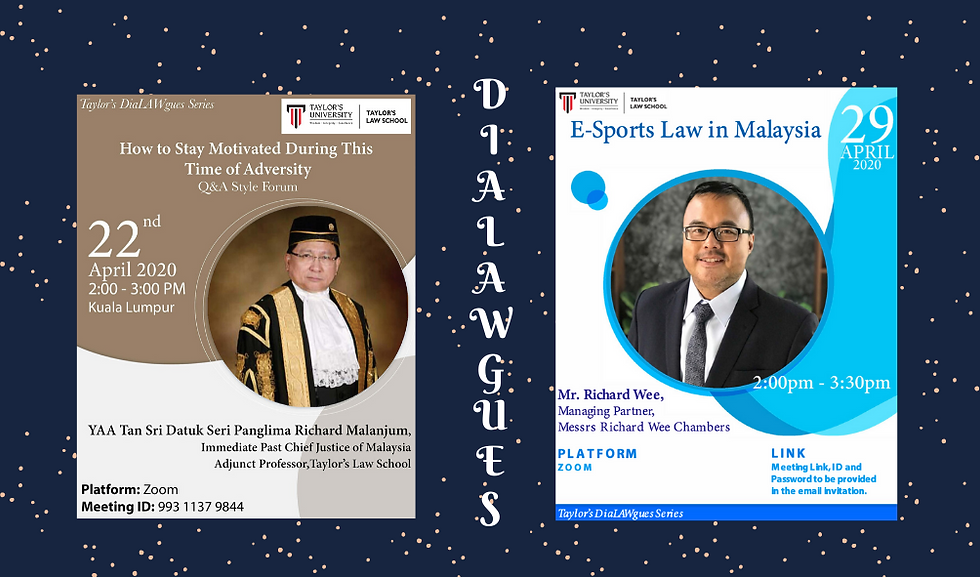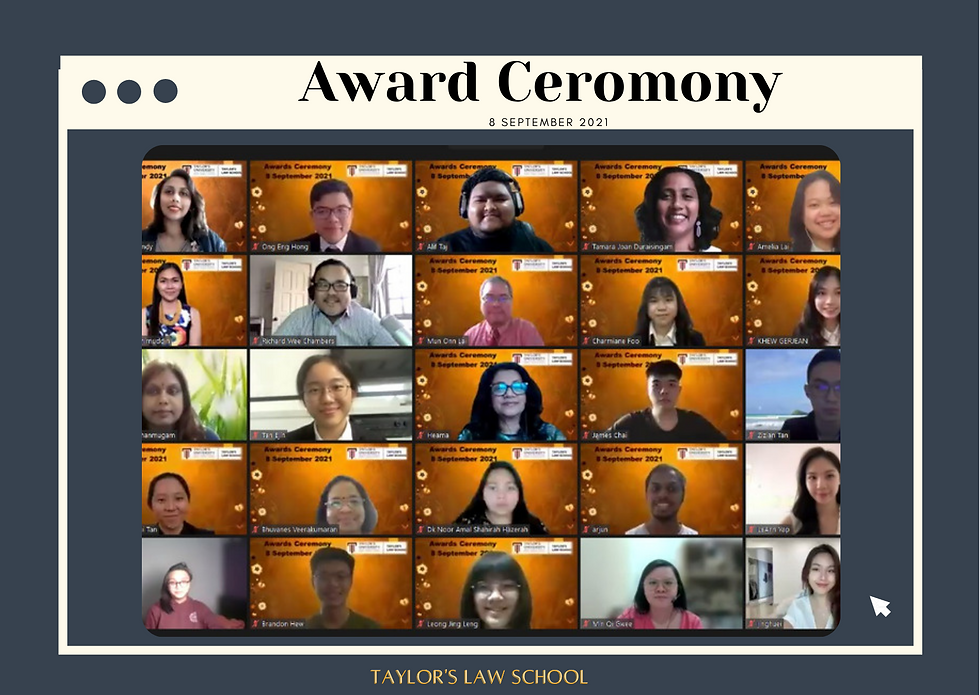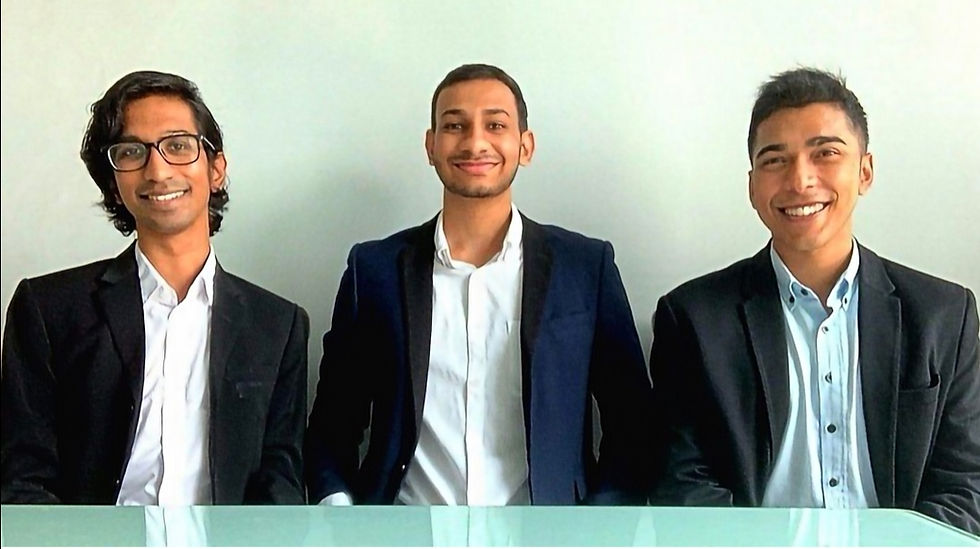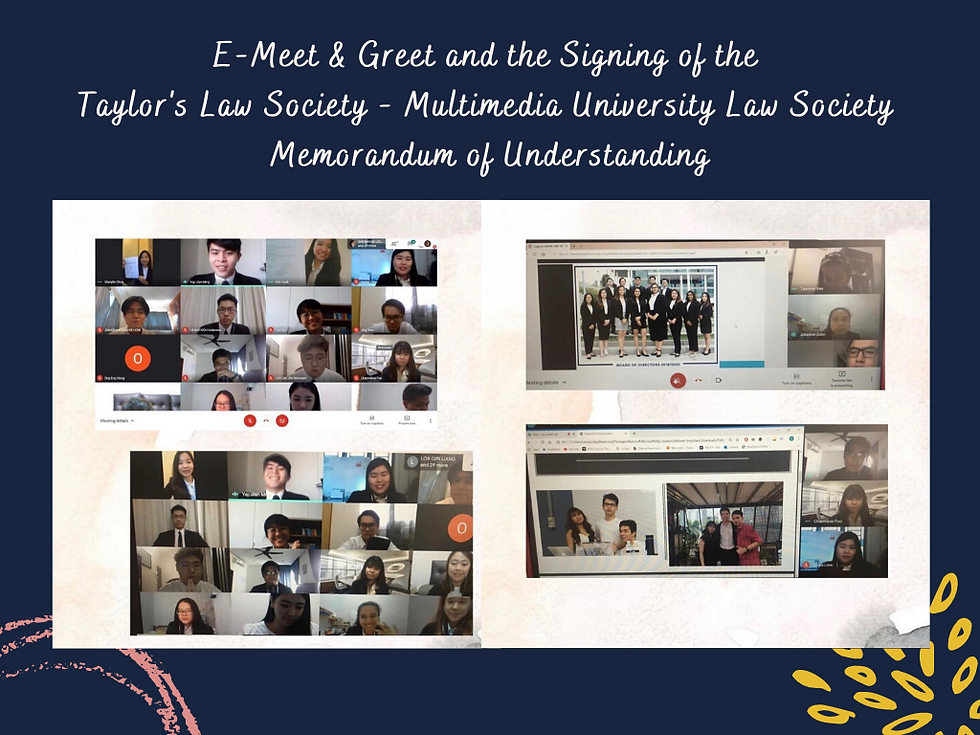From the Experts
- Ong Eng Hong

- May 2, 2020
- 3 min read
Updated: Jul 1, 2020

As Taylor’s Law School commenced its first online semester amid the Covid-19 pandemic, the DiaLAWgue series, where learned judges and lawyers share their experiences on specialised areas of law, resumes via an online platform in hopes of broadening law students’ horizons.
Adapting to a sudden transition of learning mode can be daunting. Hence, the first DiaLAWgue session in 2020 aims to ensure students stay motivated throughout the adversity. On 22nd of April, Taylor’s Law School was honoured to have YAA Tan Sri Datuk Seri Panglima Richard Malanjum, who served as the ninth Chief Justice of Malaysia and fourth Chief Judge of Sabah and Sarawak, to present a motivational talk to Taylor’s law students.
His Lordship began the session with a brief talk on the changes in lifestyles brought by Covid-19 to our society. His Lordship opined that some of the changes, especially social distancing, might be permanent even after the end of the pandemic. Despite the current situation being despairing, his Lordship provided an optimistic view of the changes. Instead of grieving about the inconveniences we suffer, his Lordship invited students to appreciate those changes as blessings in disguise as the pandemic has taught us about hygiene, adaptability and united humanity. His Lordship believed these impacts are the ones to have set the society on a path to a better future.
When posed a concerning question on how the legal profession would change due to the Movement Control Order (MCO), his Lordship encouraged students to be prepared for the inevitable digitalisation of the judiciary system. According to his Lordship, we will be seeing online court proceedings where witnesses might be cross-examined at a licensed centre and lawyers submitting via video calls. While many industries are facing the risks of elimination during the MCO, students were assured that the legal profession will always remain. “Every second, minute of the day, the law is everywhere, even the MCO is about the law”. His Lordship also advised students to utilise the MCO period to familiarise themselves with technologies in order to adapt to the changes.
As the talk approached its end, his Lordship managed to entertain students’ requests for him to share his experience in pursuing a legal career, including his Lordship’s thoughts of being a judge. His Lordship shared that judges can sometimes be doubtful of their own decisions when deciding in a case. “Did we do it right as a judge?”, was a question often raised in his Lordship’s mind. With this being one of the biggest challenges of being a judge, one must learn to leave emotions behind in order to move on to subsequent cases.
As a conclusion to his sharing session, his Lordship emphasised that “there is no shortcut” pertaining to the route of a legal career. His Lordship also advised students to always stay strong and not to be demoralised upon receiving harsh criticisms due to their mistakes when they begin their legal practices.
Following the conclusion of the first DiaLAWgue session, a second one was held on 29th April 2020, this time focusing on esports regulations in Malaysia. Mr. Richard Wee, the founding partner of Messrs. Richard Wee Chambers, was invited to share his insights on this area of law. A prominent lawyer in Malaysia with almost 20 years of experience in legal practice, Mr. Richard specialises in the areas of sports and esports law.
Mr. Richard began the talk with a comprehensive introduction to the esports industry. As he dived into the growth of esports law, he pinpointed the weak governance in esports which has resulted in many uncertainties when it comes to legal matters. This is mainly due to the absence of a leading regulatory body to provide clear guidelines.
A rising number of legal issues in esports include cases of doping and e-doping, in which the latter is where esports players use drugs to keep themselves energised, react faster or to sustain prolonged training. A strong advocate for the esports industry, Mr. Richard believes that gamers involved in e-doping, which is also known as cheating or hacking, should bear severe consequences in order for the industry to advance.
Undoubtedly, his sharing has sparked interest among many law students in the area of esports law, as numerous questions were posed to him during the Q&A session. Students were encouraged to consider exploring this area of law as the esports industry has been growing exponentially across the world.
Before concluding the session, Mr Richard reminded our law students of the social responsibilities of being a lawyer as he strongly believes that “lawyers are the first and last line of defence protecting vulnerable people from exploitations”.
It was an honour for Taylor’s law students to have the opportunity to listen to very insightful sharings. With that, Taylor’s Lexicon, alongside Taylor’s Law School, would like to deliver our deepest gratitude to both esteemed speakers. We look forward to having more insightful sessions in the future.



Comments